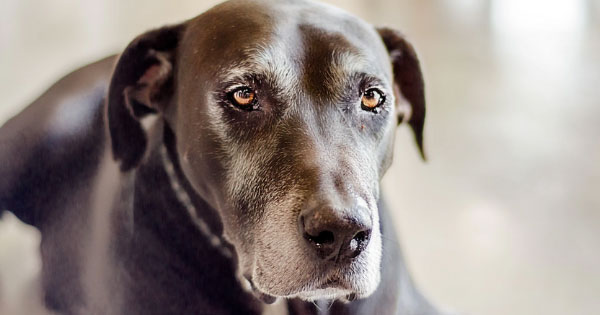
Thanks to advanced veterinary care and improved diet, our four-legged family members are living longer than ever before. This also means that, like human beings, they become less mobile and experience age-related conditions as they reach seniorhood. Many canines north of 7 years old might be struggling to climb onto the bed or enjoy their favorite game of catch. However, caring for your aging pet by adjusting to their lifestyle needs, you can help them live their best life as they face new challenges.
Below are some ways to introduce healthy lifestyle habits so your pet spends their golden years happy and healthy.
Double Up on Vet Visits
Cats older than 11 years old, and dogs over 7 years old should be seeing a vet every 6 months. Semi-annual wellness exams are a wonderful way to track mobility and diagnose any health issues that develop. These visits also help to continue to manage and treat pre-existing conditions. During the visit, your vet should:
- Do a full-body exam
- Watch how your furry friend moves around
- Look for any concerning lumps, evaluate hearing and eyesight
- Test joints for sensitivities
- Check your pet’s heart, liver, lung, and kidney function
- Track previous concerns
Routine testing also increases the chances of catching “clinically silent health abnormalities” before they become major problems. The evaluations allow your vet to make specific recommendations to keep your fur baby healthy and active.
Stick to a Healthy Diet
Pets develop food issues as they age. This could include lack of appetite, problems chewing, digestive difficulties, and obesity. So when caring for your aging pet, consult with your vet about the best meals for your aging pet. Dietary changes may include decreasing carbohydrates, adding more fiber, or adding steamed dark greens. Supplements such as glucosamine, vitamin C, MSM, and omega-3 fatty acids may also be recommended to promote brain, joint, skin, and digestive health.
Keep Your Aging Pet Active
Just because your pet is having difficulty with activities they used to enjoy doesn’t mean walks and playtimes will stop. However, you may need to coax your furry friend to stay active. Being active is imperative to their health and well-being. Consider changing up their activities, try light jogs, short walks, or swimming. These options are great low-impact exercises for senior pets. Just don’t force them to overdo it, 15 to 30 minutes per day is enough conscious exercise.
Play Some Brain Games
Some pets may suffer from cognitive dysfunction syndrome (CDS) as they age. To help keep their brain sharp you can use puzzle toys, treat “scavenger hunts,” or hide-and-seek. These cognitive workouts are key to keeping your pet mentally engaged and are fun at the same time. If you notice signs of anxiety, aggression, irritability, confusion, or any other behavioral changes, please consult your vet.
Maintain Oral Health
Dental health becomes even more important as your pet ages. Senior pets have an increased risk of problems such as cracked teeth and gum disease. Both of which are painful conditions that require vet attention. Make a habit of brushing your pet’s teeth regularly using gentle circular movements. If your pet isn’t a fan, consider dental treats and toys instead. Schedule an appointment with your vet at least once a year to have your pet’s teeth professionally cleaned.
Add in More Grooming Sessions
Your pet’s coat and skin can become dull-looking, dry, flaky, and brittle as they age. Less activity can predispose your pet to mats, tangles, and unruly nails. Brush your pets regularly to promote healthy hair and skin. If your pet is experiencing incontinence, additional baths will be needed. This will allow you to keep your pet looking their best and provide an opportunity to check for bumps, lumps, cuts, scrapes, or areas of irritation.
“Seniorize” Your Home
If your pet has developed hip dysplasia, arthritis, or other joint issues that affect their mobility, consider installing a special ramp to make movement easier. This is especially important if stairs can’t be avoided. Invest in an orthopedic or heated dog bed to soothe aching joints and ensure a pain-free, restful sleep. Keep food and water in areas that are easily accessible. Also, consider placing rugs on slippery surfaces can help your aging pet maintain traction. If your pet is having vision problems or has gone completely blind, try not to move furniture as it will confuse them and make them bump into things. The goal is to keep your pet safe and comfortable.
Show Your Fur Baby Lots of Love
Patience, companionship, and TLC become even more important when caring for a senior pet. Your pet might not see or hear as well, but they’ll definitely treasure your physical presence and touch. Even better, engage in regular adventures and make the most of time together. Give them new sights, sounds, and smells to explore.
Fear Free Medical Care for Your Aging Pet
If you have any questions or concerns about caring for your aging pet, Naples Coastal Animal Hospital is here to help. We provide state-of-the-art comprehensive services and a friendly team that understands the unique human-animal bond. As a Fear Free Certified animal hospital, we’re dedicated to decreasing fear, anxiety, and stress in all our patients.
Over the years, we’ve made big and small changes in our facility, including allowing cats to stay in their carriers, offering treats and hiding spaces, and improving our handling techniques. These help pets feel safe and comfortable while receiving the best medical care possible. Call (239) 500-0105 to book an appointment and experience the Fear Free difference.
